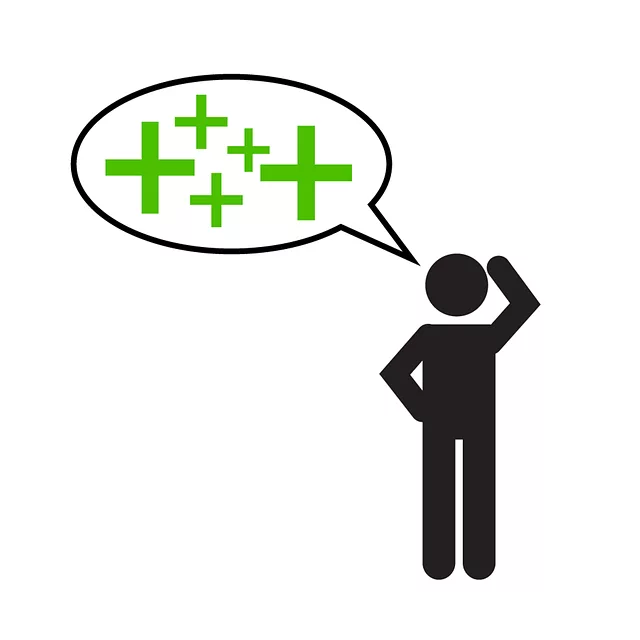Kaiser Cognitive Behavioral Therapy (KBT) is a powerful psychotherapy approach targeting negative thought patterns and behaviors, effective for anxiety, depression, stress, and Adult ADHD. Through self-reflection, individuals uncover unhelpful cognitive distortions and replace them with realistic, positive thoughts, influencing emotions and actions. KBT has proven success in trauma healing, bereavement therapy, and goal setting, fostering resilience and personal growth. By challenging negative thought patterns, adopting healthy habits, and tracking progress, KBT supports lasting positive changes in mental health and well-being.
Transform your life with Kaiser Cognitive Behavioral Therapy (KBT), a powerful tool for personal growth. This comprehensive guide takes you through each step of KBT, from self-reflection to building healthy habits, providing a roadmap for positive transformation. Learn how to identify areas for change, set realistic goals, challenge negative thought patterns, and track your progress. Discover the secrets to sustaining positive changes long-term and celebrate milestones along the way.
- Understanding Kaiser Cognitive Behavioral Therapy (KBT): A Powerful Tool for Personal Growth
- Identifying Areas for Change: Self-Reflection as the First Step
- Setting Realistic Goals: Crafting a Roadmap for Transformation
- Challenging Negative Thought Patterns: KBT's Core Technique
- Building Healthy Habits: Sustaining Positive Changes Long-Term
- Tracking Progress and Celebrating Milestones: Measuring Your Journey's Success
Understanding Kaiser Cognitive Behavioral Therapy (KBT): A Powerful Tool for Personal Growth

Kaiser Cognitive Behavioral Therapy (KBT) is a highly effective form of psychotherapy that focuses on identifying and changing negative thought patterns and behaviors. It’s a structured approach designed to help individuals manage various mental health challenges, including anxiety, depression, and stress-related disorders. KBT teaches clients to recognize unhelpful cognitive distortions and replace them with more realistic, positive thoughts, thereby influencing their emotions and actions.
This therapy is particularly beneficial for those struggling with conditions like Adult ADHD, where it can help improve focus and impulse control. Moreover, trauma-focused CBT has proven successful in aiding individuals who have experienced traumatic events, helping them process and overcome the lasting effects of such experiences. By learning coping strategies and gaining insights into their thoughts and behaviors, clients can achieve significant personal growth and an improved quality of life.
Identifying Areas for Change: Self-Reflection as the First Step

Identifying Areas for Change Begins with Self-Reflection
Taking a step towards transforming your life starts with introspective self-reflection, acknowledging areas where change is needed. Kaiser Cognitive Behavioral Therapy (KBT) emphasizes this initial step as crucial in personal growth. By carefully examining your thoughts, feelings, and behaviors, you can pinpoint specific aspects of your life that are not serving you well. This process involves honestly evaluating your current state and identifying patterns that might be holding you back or causing distress.
Self-reflection allows you to recognize unhelpful thought processes, such as negative self-talk or distorted perceptions, which KBT treatment near me effectively addresses. For instance, if you’re experiencing grief and loss, CBT for bereavement can help you process these emotions healthily. Similarly, bereavement support groups utilizing CBT techniques can foster a sense of community while guiding individuals through the healing process. Through self-reflection, you gain valuable insights, setting the foundation for positive changes in your life.
Setting Realistic Goals: Crafting a Roadmap for Transformation

Transforming your life is a journey that begins with setting realistic goals—a process akin to crafting a detailed roadmap. This involves identifying specific areas you wish to change, whether it’s improving mental health, managing stress, or overcoming past traumas using evidence-based practices like Kaiser Cognitive Behavioral Therapy (KBT). By breaking down these goals into manageable milestones, you create a clear path forward.
One effective approach is to utilize KBT treatment near you, which has proven successful in various therapeutic settings, including bereavement therapy sessions for those coping with loss. CBT therapy for trauma helps individuals process and overcome distressing events, fostering resilience. Incorporating these strategies into your life can be a powerful catalyst for positive change, guiding you towards a more fulfilling and balanced existence.
Challenging Negative Thought Patterns: KBT's Core Technique

Challenging Negative Thought Patterns is at the core of Kaiser Cognitive Behavioral Therapy (KBT). This powerful technique helps individuals identify and alter unhelpful thinking habits that contribute to emotional distress and hinder personal growth. By examining the evidence behind our thoughts, KBT encourages a more realistic and balanced perspective, breaking free from the cycle of negative self-talk.
Trauma-focused cognitive behavioral therapy, a specialized form rooted in KBT principles, is particularly effective for those dealing with past traumas. Marital CBT therapists utilize these techniques to improve communication and resolve conflicts within relationships. Through this process, individuals learn to replace self-critical thoughts with more positive and adaptive ones, fostering resilience and enhancing overall well-being.
Building Healthy Habits: Sustaining Positive Changes Long-Term

Transforming your life involves adopting healthy habits that support your mental well-being and emotional resilience. While starting new routines can be challenging, Kaiser Cognitive Behavioral Therapy (K CBT) offers effective strategies for making positive changes stick. K CBT encourages individuals to identify and challenge negative thought patterns, replace them with more adaptive ones, and develop coping mechanisms tailored to their unique needs. This approach not only addresses specific concerns like social anxiety in CBT groups but also equips you with the tools to manage various mental health challenges, including depression using CBT techniques.
By integrating K CBT principles into your daily life, you can cultivate lasting habits that promote overall well-being. This involves setting realistic goals, practicing self-care, and seeking support from a therapist or a supportive community. Consistently applying these strategies helps solidify new behaviors, making them an integral part of your routine. Over time, with dedication and persistence, these healthy habits will contribute to significant and enduring positive changes in your life.
Tracking Progress and Celebrating Milestones: Measuring Your Journey's Success

Tracking your progress is a vital aspect of transforming your life, especially when leveraging techniques like kaiser cognitive behavioral therapy (KCT). By setting clear goals and milestones, you can measure the success of your journey. KCT, often facilitated through online cbt sessions, encourages self-reflection and offers practical tools to challenge negative thought patterns and behaviors. Regularly evaluating your progress allows you to identify areas where you’re thriving and aspects that may need additional focus or support.
Celebrating milestones is another powerful strategy to maintain motivation and foster a positive mindset. Recognizing your achievements, no matter how small, reinforces the sense of progress and accomplishment. Incorporating CBT and meditation practices into your routine can enhance this experience by promoting mindfulness—a key component in understanding and managing emotions effectively. Moreover, for individuals dealing with trauma, CBT therapy offers specialized techniques to navigate and overcome distressing memories and behaviors, ultimately contributing to personal growth.
Transforming your life is a journey of self-discovery and growth, and Kaiser Cognitive Behavioral Therapy (KBT) offers a proven roadmap. By understanding your thought patterns, identifying areas for change, setting realistic goals, and building healthy habits, you can challenge negative thoughts and make lasting positive changes. Track your progress and celebrate milestones along the way to stay motivated and inspired as you navigate this empowering path of personal transformation.






